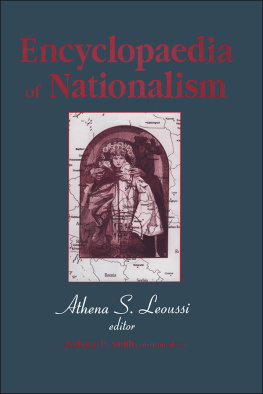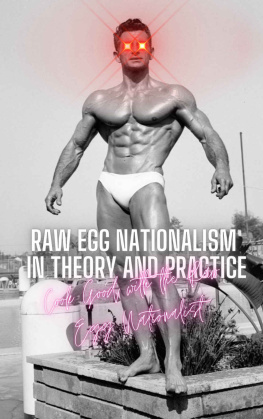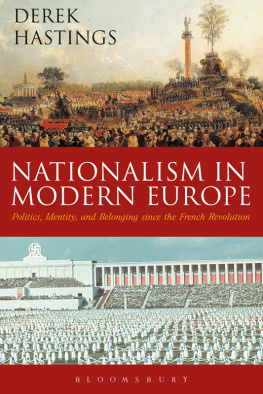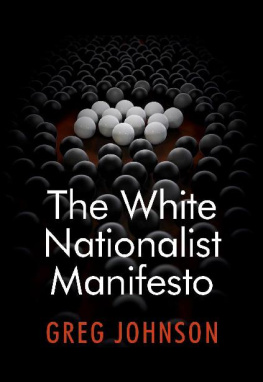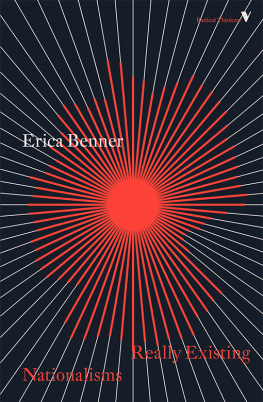Illustrations & Maps
ILLUSTRATIONS
Unknown artist, The Execution of Captain Hale
Franois Georgin, Napoleon at Arcis-Sur-Aube
Isidore Pils, Rouget de Lisle Singing La Marseillaise
Jacques Rattu, The Triumph of Liberty
John Trumbull, The Declaration of Independence
Unknown artist, The Triumph of the French Republic under the Auspices of Liberty
Le Coeur, after Swebach, Oath of the Federation of 14 July 1790
Unknown artist, Britannia Blowing up the Corsican Bottle Conjurer
Fiayn and Chaponnier, after Lembert, Crossing the Bridge at Arcole
Unknown artist, Fichte Addressing the German Nation
Unknown artist, Teaching: Quinet, Villemain, Guizot, Cousin, Michelet, and Renan
Unknown artist, French-Polish Committee Flags
Victor Adam, Procession of Napoleons Funeral Cortege
Pinon, after Horace Vernet, Grenadier on Elba Island
The New Marianne, illustration in Le Petit Journal
Philipp Veit, Germania
Clark and Dubourgh, after I. A. Atkinson, Russian Loyalty and Heroism
Unknown artist, Washington Giving the Laws to America
Emanuel Leutze, Washington Crossing the Delaware
Timothy H. OSullivan, photographer, Incidents of the War: A Harvest of Death. Gettysburg, July 1863
Unknown photographer, Off to War, 1914
Destroy This Mad Brute, American war poster designed by H. R. Hopps
Unknown photographer, French Remembrance Ceremony
The National Socialist Party Ensures the Peoples Community, German Nazi poster designed by Ahrle
William Vandivert, photographer, Residents Cleaning Bombed-Out Buildings in Berlin
Mansell, photographer, Gandhi Leading the Salt March to Protest British Policies in India
Unknown photographer, Franois Mitterrand and Helmut Kohl at Verdun
Steve Hockstein, photographer, Barack Obama Announces Strategy for Afghanistan
MAPS
The Napoleonic Empire in Europe, 1810
Europe after the Congress of Vienna, 1815
Territorial Expansion of the United States from the 1780s to the 1850s
Europe in 1914
Europe after the First World War
Decolonization and the Emergence of New Nations, 19451975
Acknowledgments
This book is a much-revised version of a work that originally appeared in 1998. Twayne Publishers produced that book as part of a series entitled Studies in Intellectual and Cultural History (edited by Michael Roth). The earlier edition carried a different title and included only six chapters; the final two chapters of this book are therefore completely new. All other chapters, as well as the introduction and conclusion, have been significantly revised and updated. The bibliography and notes have also been extensively revised to include new scholarship that has emerged over the last fifteen years. There are new maps and numerous new images, and the title has been changed to reflect more accurately the books expanded contents. I would like to thank Charles Scribners Sons for releasing all obligations from the former edition.
I would also like to acknowledge the assistance and support of others who helped to make this book possible. Thoughtful, critical-minded students have pushed me to rethink the evolving history of nationalism as we have discussed transnational historical questions in various classes at the University of North Carolina at Chapel Hill (UNC). I particularly remember the emotionally charged discussions in a UNC undergraduate course on nationalism during the fall semester of 2001a time in which contemporary events gave students a new sense of personal engagement with the historical meaning of nationalism in the United States. Unexpected, complex events provoke each generation to bring new perspectives and questions to the study of the past, which helps to explain why the teaching of history is really a process of lifelong learning.
I have benefited greatly from the astute comments of faculty colleagues in UNCs History Department, in the Triangle Area Intellectual History Seminar, and in the Triangle Area French Studies Seminar. The seminars meet regularly at the National Humanities Center in North Carolinas Research Triangle Park, and they provide exceptional opportunities for exchanging ideas and responding to new research. Regular participants in these various seminarsincluding Don Reid, Jay Smith, Jim Winders, Steven Vincent, Linda Orr, Bill Reddy, Keith Luria, Mary Sheriff, Dan Sherman, Anoush Terjanian, Melissa Bullard, Malachai Hacohen, Anthony LaVopa, Martin Miller, and others too numerous to namehave enriched my understanding of modern history in more ways than I can acknowledge here. I am grateful to all of these colleagues and friends for their encouragement and insights.
I thank Chuck Grench, Jay Mazzocchi, and their talented colleagues at UNC Press who have helped to produce this book. I have also relied on numerous librarians and archivists for assistance in collecting illustrations for this volume (specific institutions are acknowledged in credits for the images); and I thank Bill Nelson for designing the maps. I began to plan a new version of this book when I was a fellow at the National Humanities Center (NHC) in 20023. I gained a great deal from the conversations with other NHC fellows and from the extraordinary support of the centers outstanding staff. I have also benefited more recently from the generous support of a Kenan Research Fellowship at UNC and a Chapman Family Fellowship at UNCs Institute for the Arts and Humanities (IAH), both of which made it possible for me to complete this book. The IAH is an active, creative center for interdisciplinary seminars and conferences that have often carried me into new intellectual territories and imaginative communities.
Finally, I thank my wife, Gwynne Pomeroy; my son, Kyle Kramer; and my daughter, Renee Kramer, for the diverse, enriching experiences that I share with each of these special people. I deeply value the knowledge and insights they bring to our unpredictable, ongoing conversations. This book is dedicated to Kyle and Renee, who live with curiosity and imagination amid the transnational cultures of the twenty-first century.





